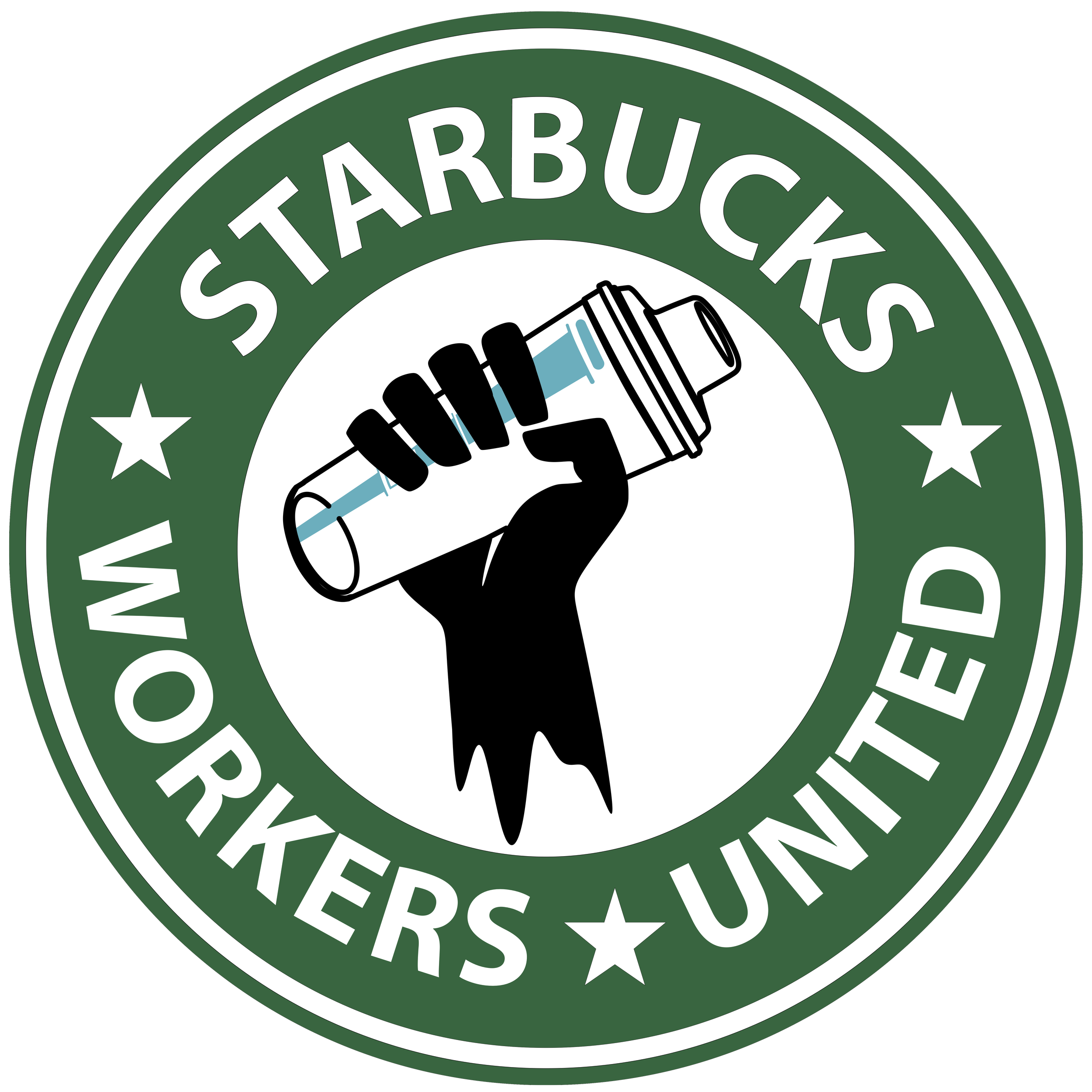The Tides of Change: Starbucks Workers and the Rising Wave of Unionization
Aug 14, 2023


In the past year, the landscape of labor in the United States has seen a significant shift. Workers in traditionally non-unionized sectors are standing up for their rights, and Starbucks, one of the largest multinational coffeehouse chains, is at the center of this unfolding narrative.
What's Going On
As of June 2023, over 8,000 workers at over 331 Starbucks stores in at least 40 states have voted to unionize, primarily with Workers United. This movement marks a pivotal change in Starbucks' labor history, given the company's long-standing opposition to unionization efforts. Starting from a single store in Buffalo, New York, the movement has sparked a wave of unionization efforts, with strikes being staged at over 190 locations.
Starbucks, valued at $100 billion as of 2021, is a significant player in the global economy with a substantial workforce. The company refers to its employees as "partners," a nod to the belief that its success is shared with its workforce. However, the recent unionization efforts suggest a growing dissatisfaction among the partners.
U.S. Labor Laws and the Right to Unionize
In the United States, the right to form and join unions is protected under the National Labor Relations Act (NLRA) of 1935. The NLRA prohibits employers from interfering with, restraining, or coercing employees in exercising their rights to form, join, or assist labor organizations, to bargain collectively through representatives of their choosing, and to engage in other concerted activities for the purpose of collective bargaining or other mutual aid or protection.
Employers are also prohibited from refusing to bargain in good faith with unions. This includes refusing to meet at reasonable times, declining to discuss grievances, or making changes to wages, hours, and other terms and conditions of employment without bargaining with the union.
Union organizing begins with a group of employees, a labor union, or an individual employee petitioning the National Labor Relations Board (NLRB) to represent a group of "bargaining unit" employees. After the NLRB verifies that at least 30% of the bargaining unit employees support the petition, it directs a secret-ballot election. If a majority of the employees who cast ballots vote in favor of union representation, the NLRB will certify the union as the representative of the employees in the bargaining unit.
Unions are allowed to conduct certain activities in the interest of their members, including picketing, striking, and collective bargaining. However, certain forms of conduct are considered "unfair labor practices," such as restrictions on the rights of employees to express their views, arguments, and opinions, and prohibitions against restraining or coercing employees in the exercise of their rights under the NLRA.
What the Union Wants
The proposals put forth by Starbucks Workers United Union are comprehensive, covering a range of issues from wages and healthcare to scheduling and safety. The union's proposals are as follows:
1. Right to Organize: The union demands protection against union-busting activities and calls for a fair process for union votes.
2. Strong Foundation of Rights: This includes discipline and discharge for fair cause only, a legal process to fight back when disputes arise, and seniority rights.
3. Health & Safety: The union seeks a commitment to racial justice, zero tolerance of sexual harassment, and a joint safety committee of workers and managers.
4. Wages & Pay: The union proposes a base wage of at least $20 an hour for baristas, strong annual raises, seniority raises, and an employer-sponsored 401(k) retirement plan.
5. No Reductions: The union insists that no employees will have their wages, benefits, or other working conditions reduced or taken away unless mutually agreed to by both workers and Starbucks.
6. Hight Quality Healthcare: The union calls for affordable and 100% employer-paid care, accessible for full and part-time workers, and improved access to mental health services.
7. Guaranteed & Consistent Schedules: The union demands a fair process to obtain consistent schedules, guaranteed full-time status for those who work an average of 32 hours per week, and a system to guarantee one’s hours each week.
8. Expanded LOA & PTO: The union seeks faster accrual of vacation based on total years of service, up to 13 paid sick days per year, and expanded access to leaves of absence.
9. Immediate Access to Withheld Benefits: The union calls on Starbucks to provide immediate access to certain benefits such as credit card tipping, inclusive apron sizes, expansion of the dress code, faster accrual of PTO, and additional training.
Starbucks' Position on Unionization
Starbucks has issued a statement emphasizing its commitment to its partners and highlighting the comprehensive employment package it offers, which includes a generous wage and benefits package to eligible employees, including health coverage and stock options.
While Starbucks states that it respects its partners' right to organize, it maintains that its work environment and compensation make unions unnecessary. The company asserts that it strictly complies with laws and guidelines associated with union organizing activities and does not retaliate against employees who express support for unions or take part in union activity.
The Future of Unionization at Starbucks
The clash between Starbucks and its workers is more than just a dispute over wages and benefits. It represents a broader struggle within the U.S. labor market. The outcome of this situation could potentially influence the future of unionization in traditionally non-unionized sectors.
The recent events at Starbucks underscore the necessity for both employers and employees to understand their rights and responsibilities under U.S. labor law. As the situation continues to evolve, it serves as a powerful reminder of the ongoing struggles and negotiations that shape the American workforce.
---
Remember, this blog post is intended for informational purposes only and does not constitute legal advice. For specific guidance on labor laws and unionization, consult with an experienced labor law attorney.